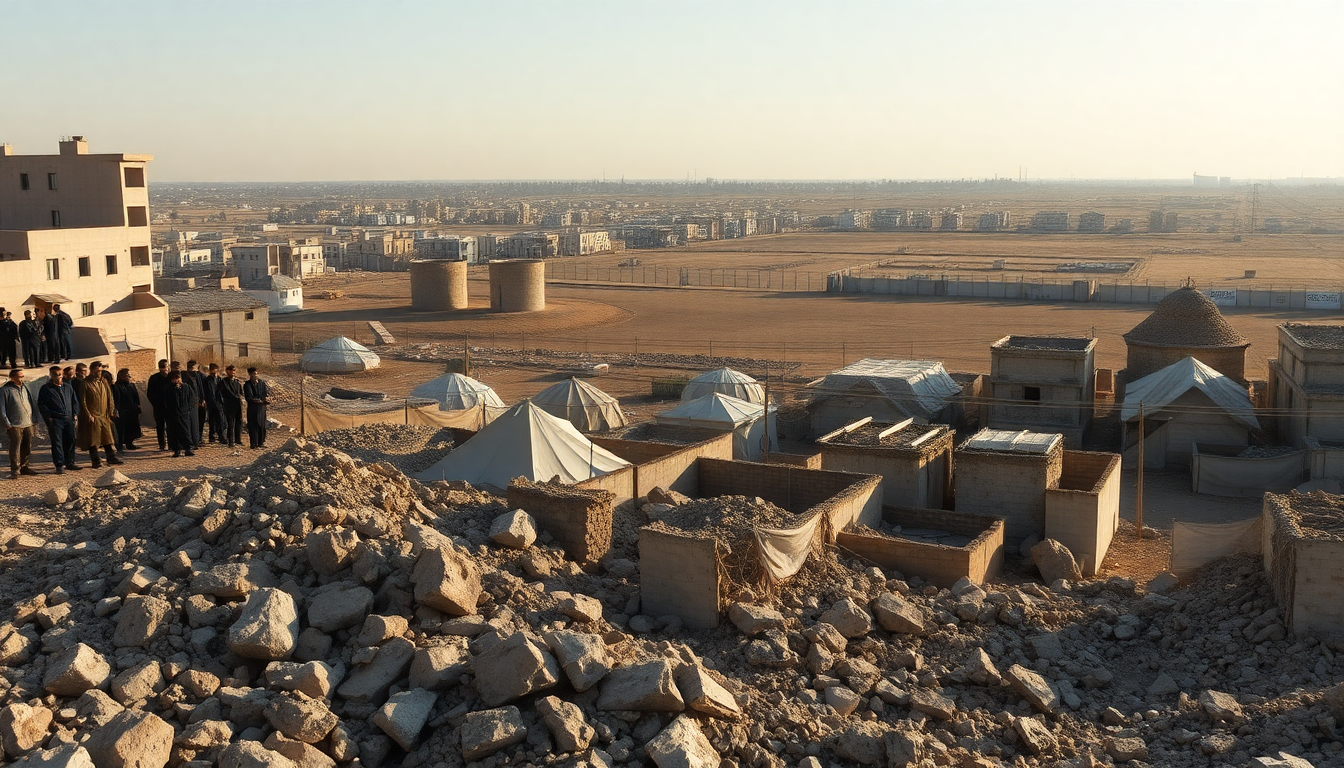Table of Contents
The recent proposal by Israeli Defense Minister Israel Katz to create a so-called “humanitarian city” in Gaza has ignited a firestorm of debate and condemnation, both locally and around the globe. This plan aims to house approximately 600,000 displaced Palestinians in a designated area, but critics argue that it resembles a concentration camp. So, what does this mean for human rights, legality, and the true motives behind such a plan?
Overview of the Humanitarian City Proposal
The concept of a humanitarian city was first put forward by Katz earlier this month. The proposal outlines a framework where displaced Palestinians would be concentrated in a controlled environment, effectively cut off from other areas of Gaza. Instead of encouraging local integration, it suggests that they should consider emigrating to other countries. Unsurprisingly, this has drawn sharp criticism, with many labeling it a violation of human rights and international law.
International reactions have been swift and pointed. Prominent figures like former Prime Minister Ehud Olmert have condemned the proposal as akin to a concentration camp. Legal experts within Israel have voiced their concerns, warning that this plan could lead to severe accusations of forced displacement. Even the military’s own leadership has described the proposal as “unworkable,” underlining the internal divisions regarding its feasibility.
The implications of this plan extend far beyond humanitarian concerns; they touch on the larger geopolitical landscape. The UN has expressed its disapproval, signaling a significant international stance against the proposal. As the situation unfolds, the potential consequences of this initiative could send shockwaves throughout the region and beyond.
Criticism and Legal Ramifications
The plan has faced backlash not only from opposition parties but also from within the Israeli military. Chief of Staff Eyal Zamir has famously critiqued the proposal, stating it has “more holes than cheese,” which perfectly captures the skepticism surrounding its practicality and ethical implications. Detractors argue that establishing a humanitarian city only deepens systemic displacement and turns a blind eye to the fundamental rights of the Palestinian people.
Additionally, the legal ramifications are quite serious. Israeli legal scholars have warned that the plan could be considered manifestly illegal, raising concerns about forced displacement and the treatment of civilians. The situation in Gaza is already catastrophic, with an estimated 1.9 million people displaced due to ongoing conflicts. The thought of exacerbating this humanitarian crisis is chilling.
As discussions around the humanitarian city persist, it’s crucial to consider the broader implications of such a proposal. The potential for increased violence, further displacement, and international isolation for Israel are all pressing concerns that deserve careful scrutiny.
International Response and Future Implications
The international community has responded to the humanitarian city proposal with widespread condemnation. Officials from various countries, including the UK, Austria, and Germany, have voiced their outrage, emphasizing the need for accountability and adherence to international law. The United Nations has taken a firm stance against the idea, reflecting a growing consensus that such measures are simply unacceptable.
The narrative surrounding this proposal also sheds light on deeper societal attitudes toward the Palestinian population. Political analysts suggest that the plan may be rooted in a desire for ethnic cleansing, a troubling perspective that resonates with certain hardline Israeli factions. The historical context of such ambitions cannot be ignored, raising critical questions about the future of Gaza and the broader Israeli-Palestinian conflict.
As the situation continues to develop, the need for proactive diplomacy and humanitarian intervention becomes ever clearer. The challenges posed by the humanitarian city proposal highlight the urgent necessity for a comprehensive approach to peace that respects the rights and dignity of all individuals involved. Are we ready to take that step?


